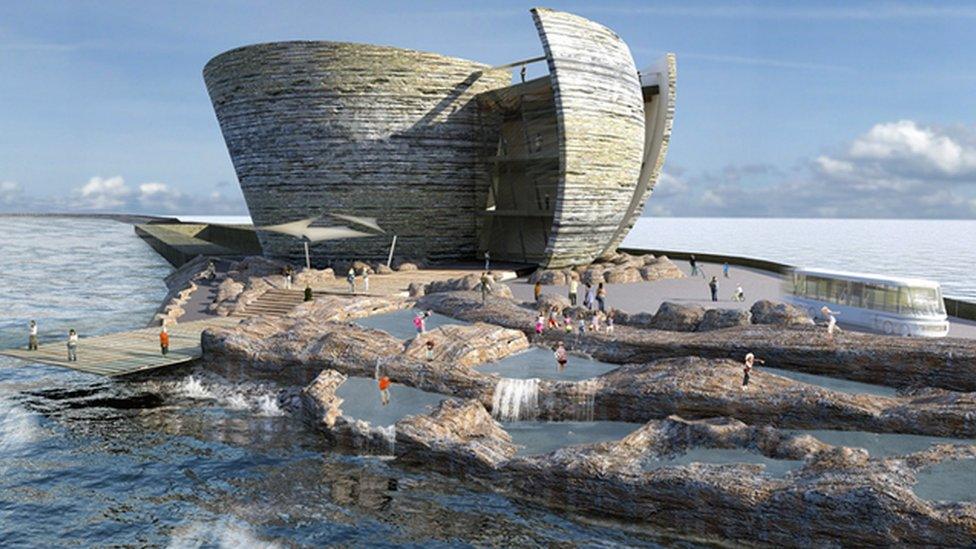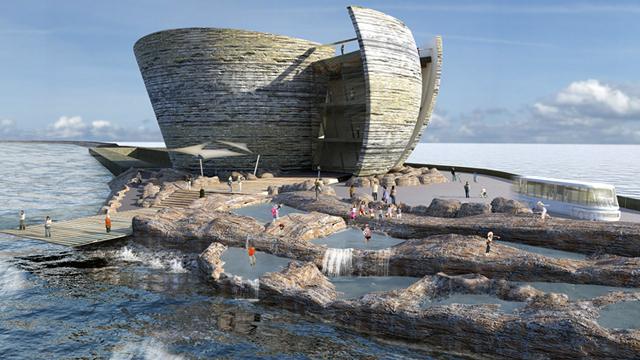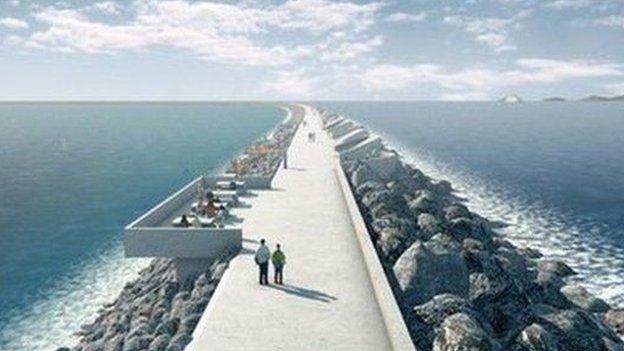Swansea Bay tidal lagoon 'viable with longer lifespan'
- Published

The proposed £1bn Swansea Bay tidal lagoon could go ahead if the cost is spread over a longer timescale, it has been claimed.
Swansea Bay City Region board chairman Sir Terry Matthews said the standard 35 year lifespan "did not make sense".
He said the UK government subsidy could be equivalent to nuclear energy prices if its lifetime was over 100 years.
Tidal Lagoon Power, the company behind the plan, has said it was confident it could hit a viable price.
Sir Terry Matthews said the strike price was 'pretty much there'
Mr Matthews told BBC Wales the strike price could come down from the reported £160 a megawatt hour to nearer £100 - similar to the new nuclear plan proposed for Hinkley Point - if the project was seen as having a longer lifespan.
It comes after Welsh Secretary Stephen Crabb said last week a "big call" was needed on the future of the proposed scheme.
He said the project had a "very large subsidy" and other options need to be looked at to see if they were more affordable.
Prime minister David Cameron also recently said his enthusiasm was cooling due to costs.
Tidal Lagoon Power said: "Tidal lagoons will provide long term security of supply from 120 year British power stations.
"Clearly there is a price at which this prospect becomes viable and through our ongoing negotiation with government we are very confident that we can hit that price."

How would the lagoon work?
Watch Tidal Lagoon Power's video of how the turbines would work
A six-mile long seawall loops two miles out to sea from close to the mouth of the River Tawe and Swansea Docks and makes landfall close to Swansea University's new Fabian Way campus to the east.
It would house 16 underwater turbines generating electricity on both the rising and falling tide.
Enough renewable power would be produced for 155,000 homes (equivalent to 90% of Swansea Bay's annual domestic electricity use) for 120 years.
Source: Tidal Lagoon Power Ltd
- Published18 January 2016

- Published2 October 2015

- Published18 March 2015

- Published15 October 2015

- Published10 June 2015
